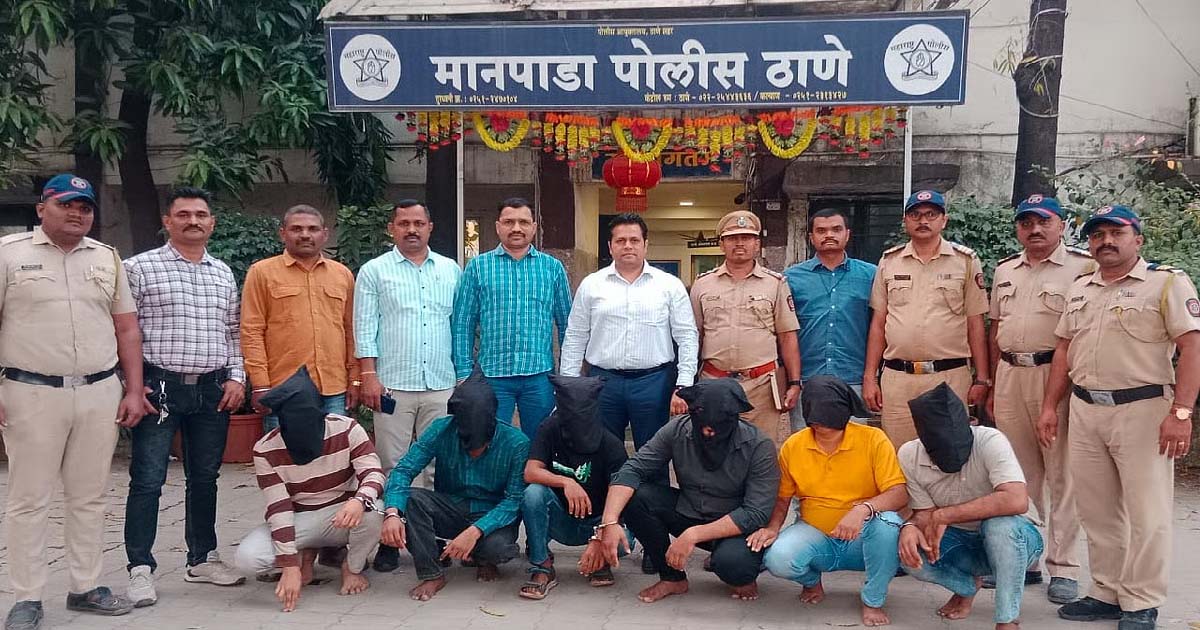Crime
India govt’s extradition efforts yield limited results in 2021
As 2021 draws to a close, the Narendra Modi governments efforts to extradite Indian businessmen from Britain for alleged fraud against Indian banks are yet to materialise.
The failed deportation of Lieutenant (Retd) Ravi Shankaran, who was accused of stealing and selling classified information from the Indian Navy’s war room, was not appealed against.
Vijay Mallya, chairman of the now closed Kingfisher Airlines, who was ordered to be extradited by the British judiciary in 2019, is yet to be sent to India. Similarly, diamantaire Nirav Modi continues to fight a legal battle to avoid deportation. Unlike Mallya, though, he has been held in custody at south London’s Wandworth prison since his arrest in 2019.
India and the UK had signed an extradition treaty in 1992. This was ratified the following year and has been in force since. Yet, only two individuals – one of them voluntarily – have been returned to India.
British solicitors Gherson’s comment is: “Chief among these bars to extradition has been the (UK) Court’s obligation to ensure that extradition would be incompatible with the rights of an individual under the European Convention on Human Rights, codified in English law with the passing of the Human Rights Act, 1998.”
London’s Westminster Magistrates’ Court had ordered Mallya’s extradition and this was upheld by the High Court of England. Gherson observes: “It has been widely reported that Mallya has, however, lodged an asylum claim, which has resulted in the extradition request being put on hold for the time being.”
The High Court of England, which earlier this year declared Mallya bankrupt at the instance of creditor Indian banks, will hear an appeal from him on the matter in the New Year.
Legal circles in the British capital believe he is bound to bring to the notice of the court that assets seized from him by Indian investigators have been sold and money owed to the banks have been received by them.
On July 26 last, Mallya had tweeted: “ED attached my assets worth (Rs) 14K crore at behest of Govt Banks against debt of (Rs) 6.2K crore. They restore assets to Banks who recover (Rs) 9K crore in cash and retain security over (Rs) 5K crore more. Banks ask Court to make me Bankrupt as they may have to return money to the ED. Incredible.”
Three days later, he posted on Twitter an Indian newspaper clipping which reported: “IDBI Bank said that it has recovered the entire dues pertaining to Kingfisher Airlines, which helped the lender report a 318 per cent jump in net profit for the quarter ended June 2021.”
In effect, the same court, which in a ruling prior to the bankruptcy order had expressed confidence that Mallya would be able to settle his debt, may now need to take into account the fact that the banks have actually recovered their lending. In other words, if it reverses its judgement, this could potentially have an impact on the extradition verdict as well.
Gherson points out the conclusion of the judge at the Westminster Court was based on the Indian government contending that loans from Indian banks “were premised on a conspiracy to commit fraud by way of fraudulent misrepresentation”.
The fact is, Indian investigators have failed to establish a case in this respect against the then chairman and senior executives of IDBI Bank, who were named as being co-conspirators with Mallya.
Nirav Modi, who too was ordered to be extradited, appealed against this on the grounds that his mental health is such that he is a suicide risk. This was heard on December 14 last. “He is at high risk of suicide already and his condition is likely to deteriorate further in Mumbai,” Modi’s barrister Edward Fitzgerald argued.
If Nirav Modi loses his appeal, he could still seek reviews at either the UK’s Supreme Court, or the European Court of Human Rights. Mallya did not exercise these options.
Significantly, the cases against them were registered when Britain was still a member state of the European Union (EU) and came under EU laws.
In chasing high-profile, headline-making alleged fugitives for justice, the Government of India may have neglected the serious issue of pilferage of sensitive documents from the Indian Navy’s war room by Shankaran.
The extradition request in this connection was rejected by the High Court of England in 2014. If there was no scope of an appeal, this does not appear to have been adequately explained. One newspaper claimed Shankaran earned a whopping sum from selling the stolen papers to armaments firms and dealers. The accused, said to be residing in London, could not be reached for a comment.
Crime
Mumbai Crime: 2 Arrested For Stealing Phone Fixed To Autorickshaw Steering In Goregaon; One Accused Has 22 Past Cases

Mumbai: Bangur Nagar Police have arrested two men from Mumbai’s Goregaon West for stealing a mobile phone that an autorickshaw driver had strapped to his steering wheel for navigation. The accused, Sohail Khan (26) and Sandeep Mohite (36), both residents of the Bhagat Singh Nagar slum, were taken into custody after the midnight theft on November 11. Police said both men are currently unemployed.
The incident occurred around 12.30 am on Link Road near the slum colony. the complainant, 44-year-old rickshaw driver Manoj Sav, was seated in his vehicle waiting for passengers when the duo swiftly snatched his phone, worth Rs 6,000. The device had been secured to the steering using a rubber band. Sav realised the theft only later and later lodged a complaint at Bangur Nagar Police Station.
During the investigation, police first traced and arrested Sohail Khan. His interrogation led officers to the second accused, Mohite. Based on their statements, police recovered two stolen mobile phones worth Rs 11,000, indicating that the men had likely committed multiple thefts in the area.
Further checks revealed an extensive criminal history for Mohite. Police records showed he has 22 previous cases registered across Bangur Nagar, Goregaon and Kasturba Marg police stations. Due to his repeated involvement in theft and related offences, Mohite had previously been externed from city limits by DCP Sandeep Jadhav. Khan, too, has two prior cases registered against him at Goregaon and Bangur Nagar.
Police officials said the arrests have helped crack multiple theft incidents reported recently and added that further investigation is underway to determine whether the duo were involved in additional crimes.
Crime
Mumbai: 19-Year-Old Student Alleges Sexual Abuse, Forced Surgery & Extortion By Transgender Gang

Mumbai, November 14: A 19-year-old BCom student from Malad has accused a local transgender gang of forcing him into gender reassignment surgery, blackmailing him and subjecting him to physical and mental abuse over several months. The teen, a resident of Appapada in Kurar village, told police he became friends with Kaveri, also known as Kartik Vedamani Nikam, around a year and a half ago. Through this acquaintance, he met Neha Khan, also known as Neha Ipte, who allegedly headed a transgender group in Malwani.
According to the complaint, the student was called to Neha’s home on August 5, where Neha, Kaveri, Bhaskar Shetty and Mahi allegedly tried to convince him to undergo gender transition. When he refused, they reportedly locked him in a room, assaulted him and forced him to perform obscene acts which were filmed. The video was then allegedly used to demand money. His mother transferred ten thousand rupees out of fear.
Over the next two months, the gang allegedly demanded more money and publicly humiliated him. He says he was beaten, made to wear a saree and forced to beg.
The complaint states that on October 28, Neha, her husband Sohail Khan, their adopted son Bhaskar and others took him to a hospital near Ripple Mall in Surat. There, he was allegedly compelled to sign papers and was subjected to gender reassignment surgery. After returning to Mumbai, he claims Neha poured hot water on his operated area and forced him to do chores. She allegedly demanded four and a half lakh rupees to release him.
The teen escaped on November 4 but was allegedly abducted again hours later. A local resident intervened and he was freed. A zero FIR was filed at Kurar police station before the case was transferred to Malwani police.
“Based on the victim’s statement, we have booked the accused under sections related to conspiracy, kidnapping, sexual assault, extortion and forced medical mutilation,” an officer said. Police have arrested four people and the probe is ongoing.
Crime
Thane Police Crack Dombivli Bar Murder Case Within 24 Hours, Arrest Six Accused After Film-Style Chase In Nashik

Dombivli: In a shocking incident, a 38-year-old man was brutally murdered following a minor altercation outside a bar in Dombivli MIDC area. The Manpada Police cracked the case within 24 hours and arrested six accused from Nashik after a dramatic, film-style chase through narrow lanes.
The arrested accused have been identified as Amar Rajesh Mahajan (36), Akshay Kumar Shankar Waghle (26), Atul Balu Kamble (24), Nilesh Madhukar Thosar (42), Prateek Singh Prem Singh Chauhan (26), and Lokesh Nitin Chaudhary (24).
The incident took place around 12:15 a.m. on Sunday, November 9, near the entrance of Malvan Kinara Bar and Restaurant in the MIDC Phase 2 area. The victim, Akash Bhanu Singh (38), was stabbed to death following a dispute over an accidental push.
According to the complaint filed by Akash’s younger brother, Badal Singh, who works at a call center in Navi Mumbai, Akash had gone to the bar with his friends for dinner. As they entered, Akshay Waghle accidentally brushed against him. Although Akash apologized and explained it was unintentional, Waghle became aggressive, assaulted him, and threatened to kill him.
Soon after, Waghle called his associates to the spot. The six accused dragged Akash out of the bar, brutally assaulted him on the road, and stabbed him multiple times, killing him on the spot. When Sunil Kagale, a bystander, tried to intervene, the gang attacked him with knives as well leaving him injured.
The case posed a major challenge for police, as there were no immediate clues or CCTV evidence from the crime scene. However, under the supervision of Deputy Commissioner of Police Atul Jende, Assistant Commissioner of Police Suhas Hemade, and Senior Police Inspector Sandipan Shinde, the Manpada police team launched an intensive investigation.
A team led by Assistant Police Inspectors Sampat Phadol, Mahesh Rale-bhat, and Sagar Chavan used technical surveillance and local informants to trace the accused to Nashik. Acting on a tip-off, police teams coordinated with Nashik City Police and raided multiple locations. On seeing the police, the accused tried to flee, but officers chased them down in a cinematic-style pursuit through the streets and successfully arrested all six.
Thane Police Commissioner Ashutosh Dumbre commended the Manpada Police team for their swift action and exemplary investigation that led to solving the murder case within 24 hours.
-

 Crime3 years ago
Crime3 years agoClass 10 student jumps to death in Jaipur
-

 Maharashtra1 year ago
Maharashtra1 year agoMumbai Local Train Update: Central Railway’s New Timetable Comes Into Effect; Check Full List Of Revised Timings & Stations
-

 Maharashtra1 year ago
Maharashtra1 year agoMumbai To Go Toll-Free Tonight! Maharashtra Govt Announces Complete Toll Waiver For Light Motor Vehicles At All 5 Entry Points Of City
-

 Maharashtra1 year ago
Maharashtra1 year agoFalse photo of Imtiaz Jaleel’s rally, exposing the fooling conspiracy
-

 National News1 year ago
National News1 year agoMinistry of Railways rolls out Special Drive 4.0 with focus on digitisation, cleanliness, inclusiveness and grievance redressal
-

 Maharashtra1 year ago
Maharashtra1 year agoMaharashtra Elections 2024: Mumbai Metro & BEST Services Extended Till Midnight On Voting Day
-

 National News1 year ago
National News1 year agoJ&K: 4 Jawans Killed, 28 Injured After Bus Carrying BSF Personnel For Poll Duty Falls Into Gorge In Budgam; Terrifying Visuals Surface
-

 Crime1 year ago
Crime1 year agoBaba Siddique Murder: Mumbai Police Unable To Get Lawrence Bishnoi Custody Due To Home Ministry Order, Says Report












